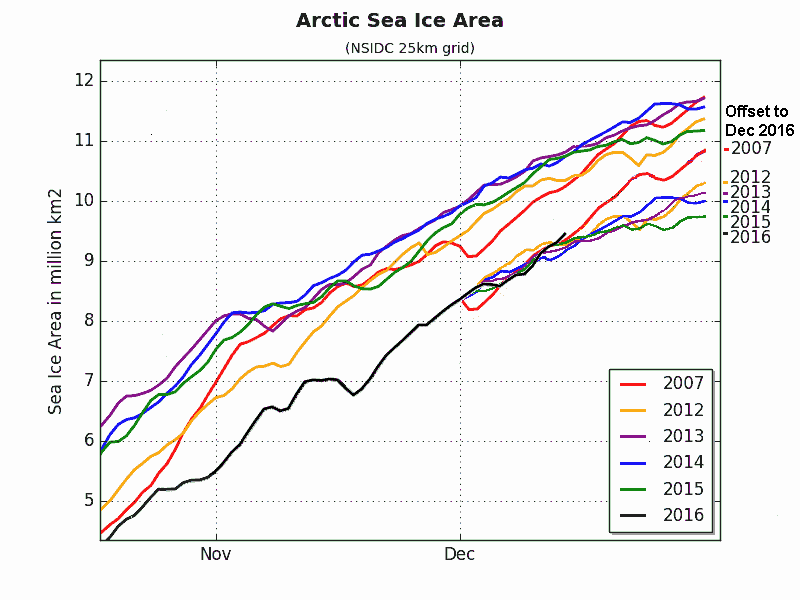|
Fangz posted:What's that on the stages of grief? Bargaining? Acceptance
|
|
|
|

|
| # ? Apr 29, 2024 03:02 |
|
Fangz posted:What's that on the stages of grief? Bargaining? Suicide.
|
|
|
|
Fangz posted:What's that on the stages of grief? Bargaining? Jihad.
|
|
|
|
MiddleOne posted:Acceptance nice TildeATH posted:Jihad. real nice
|
|
|
|
I gotta say, I'm not happy about all these climate changes.
|
|
|
|
MiddleOne posted:Any kind of Geo-engineering of the stratosphere makes me very fiddly because either Good to remember we are already engaged in massive geo engineering projects across the planet. That is the cause of this mess, after all. This is worrying about hitting an innocent bystander with one of your bullets if you fire at rhe psychopathic murderer unloading his machine gun with wild abandon inside a crowded shopping mall. Yes. That is a real risk. Unless you have a much better idea it is still by far the best course of action.
|
|
|
|
Part of the reason sulfate aerosols are considered relatively benign is that they aren't a novel feature of the climate and there are empirical bounds on their effects. Obviously any kind of atmospheric geo-engineering can have unintended consequences, but I think the likelihood of sulfate injection taking us into uncharted and dangerous territory (to anywhere near the extent that GHGs already have) is low.
|
|
|
|
Morbus posted:Part of the reason sulfate aerosols are considered relatively benign is that they aren't a novel feature of the climate and there are empirical bounds on their effects. Obviously any kind of atmospheric geo-engineering can have unintended consequences, but I think the likelihood of sulfate injection taking us into uncharted and dangerous territory (to anywhere near the extent that GHGs already have) is low. How would you go about proving this?
|
|
|
|
Santiago (Chile), just broke a 101 year record for december, 37.3°C. I remember when we used to live here 20 years ago and there were droughts (we left and came back around 4 years ago), I suspect its going to become the norm in the next few years. Sadly, no one I tell gives a gently caress. Also, there are a shitload of fires around here, and its getting worse every year. Again, no one gives a gently caress, no money to buy firefighting equipment. Firefighters dont even get paid here! Each firestation has to send their teams out on the street several times a year to ask for spare change just to keep their poo poo running. Its great and wont be a problem at all! Bolivia has been put under a national emergency for a month because the whole country is running out (or ran out already) or water.
|
|
|
|
El Laucha posted:Santiago (Chile), just broke a 101 year record for december, 37.3°C. Members of my family just got back from Santiago after touring various portions of the Conservation Land Trust's various holdings in Chile. They all had a fabulous time, but then again, they're goddamn wealthy gringos. I've been struggling to square their enthusiasm for preserving open spaces with the reality of people who actually live there.
|
|
|
|
Nocturtle posted:How would you go about proving this? By doing it, of course!
|
|
|
|
Good news! Global warming is just the modern version of the flat-earth theory!
|
|
|
|
Incredibly thin Arctic sea ice shocks researchers:Nature posted:A daring 2015 expedition that collected rare measurements of the Arctic in winter found that sea ice near the North Pole was thinner and weaker than expected. Artic sea ice is getting fragile, hope we don't need it for anything important.
|
|
|
|
Nocturtle posted:Incredibly thin Arctic sea ice shocks researchers: Like forcing the gulf stream south so it can heat up Europe?
|
|
|
|
Zudgemud posted:Like forcing the gulf stream south so it can heat up Europe? That's actually possible?
|
|
|
|
Hollismason posted:That's actually possible? Very. It's happened before. Thermohaline disruption could end the gulf stream, which means northern europe turns into siberia/alaska. Better bundle up. Here's a nice summary: https://en.wikipedia.org/wiki/Shutdown_of_thermohaline_circulation
|
|
|
|
Nocturtle posted:How would you go about proving this? Well you conduct a controlled experiment where you dump a bunch of sulfates into the air and see what happens. Short of that you obviously aren't going to "prove" anything. But there are a lot of reasons why you can be reasonably certain about the broad scope and effects of sulfate geoengineering: -Sulfates are always in the atmosphere, and there is a natural sulfate cycle. Volcanoes occasionally dump large amounts of sulfate into the upper atmosphere, and the cooling effect and depletion of these sulfates is documented empirically and somewhat well understood theoretically. -The lifetime of stratospheric sulfate aerosols is around a year or so, and tropospheric sulfates much less than that. One the one hand, this means sulfate geoengineering needs to be constantly sustained to be effective. On the other, it means if necessary it can be quickly halted whereupon the earth system should return to its previous state relatively soon. -The amount of sulfur that needs to be added to the atmosphere is generally estimated to be between 2-5 megatons/yr.. almost certainly more than 1, almost certainly less than 10. This is similar to or less than the sulfate loading caused by large volcanic eruptions that happen several times per century. The biggest unresolved issue is that, while the sulfate loading from occasional large volcanic eruptions apparently does not have any catastrophic effects to ecosystems, it's not clear what would happen if you had a continual forcing like most geoengineering proposals call for. While this is a big "if", to the extent that people are thinking about it, there don't seem to be obvious reasons why more prolonged reductions in UV and scattering of sunlight should cause major problems. There are also concerns about acid rain and ozone depletion. For the former, this seems very unlikely to be a big issue since the amount of tropospheric sulfur is only increasing by a tiny amount. For ozone depletion, the effects would be most pronounced in the arctic where it matters less, and in any case the UV reflected off sulfate aerosols and the extra UV from less ozone look like they would be approximately of the same amount, so big changes seem unlikely. There is a decent review article here, although its from 2008. Probably you can find a more recent one. http://rsta.royalsocietypublishing.org/content/366/1882/4007
|
|
|
|
I'd be okay with geoengineering if it came after a complete restructuring of society that is built on sustainability and equality. But that's not going to happen. It's going to be capitalism's last gasp of air. Desperately trying to survive. And maybe it'll be successful for some time, but it never addresses the root problem. The infrastructure maintaining a complicated geoengineering project will start to fail, and the cooling will come to an abrupt end. That could trigger an extinction level event far worse than the slow death we're currently facing.
|
|
|
|
Nice piece of fish posted:Very. It's happened before. Thermohaline disruption could end the gulf stream, which means northern europe turns into siberia/alaska. Better bundle up. It's funny that there was a mainstream movie called 2012 (2009) about this. e: my gf's brother did fx on it so we had to watch it, that's my excuse
|
|
|
|
Minge Binge posted:I'd be okay with geoengineering if it came after a complete restructuring of society that is built on sustainability and equality. But that's not going to happen. It's going to be capitalism's last gasp of air. Desperately trying to survive. And maybe it'll be successful for some time, but it never addresses the root problem. The infrastructure maintaining a complicated geoengineering project will start to fail, and the cooling will come to an abrupt end. That could trigger an extinction level event far worse than the slow death we're currently facing. This is a really dumb opinion! (USER WAS PUT ON PROBATION FOR THIS POST)
|
|
|
Morbus posted:Part of the reason sulfate aerosols are considered relatively benign is that they aren't a novel feature of the climate and there are empirical bounds on their effects. Obviously any kind of atmospheric geo-engineering can have unintended consequences, but I think the likelihood of sulfate injection taking us into uncharted and dangerous territory (to anywhere near the extent that GHGs already have) is low. Morbus posted:Well you conduct a controlled experiment where you dump a bunch of sulfates into the air and see what happens. Short of that you obviously aren't going to "prove" anything. But there are a lot of reasons why you can be reasonably certain about the broad scope and effects of sulfate geoengineering: You've never actually run an actual scientific experiment in your life, have you? Minge Binge posted:I'd be okay with geoengineering if it came after a complete restructuring of society that is built on sustainability and equality. But that's not going to happen. Correct, which is why geoengineering is a singularly bad idea. The argument that "humans have been geoengineering the planet since civilization started, therefore" is also bad and dumb. In The situation we're in is because in ~2000 years of recorded history and ~300 years of modern technological development, we've not stopped to actually reckon with what the hell we're doing to the planet, even just by passively existing. The last few years worth of revelations should reinforce the point that when it comes to Earth systems we're barely scratching the surface of understanding how the planet works and how bad things could get. Geoengineering on a scale that would make any sort of noticeable difference on a short time frame (5-10 years) would almost certainly either be 1) insufficient to stopping long term variation in climate or 2) go so wrong as to irrevocably gently caress up the climatic optimum and ecosystem balance that we rely on to survive. Seriously, it's a bad idea. And chances are in the next 10-15 years you're going to see some rich rear end in a top hat (my money would be on Thiel or Musk, personally), try to go ahead with it anyway. We already have the answers for averting the crisis (reduce consumption, ramp up renewables, transition away from emission heavy tech, etc), we just lack the political will to realize them. Focus on that instead of pie in the sky technological fixes that will almost certainly make the problem worse.
|
|
|
|
|
Arctic sea ice extent is up about +115,000 sq km for December 14th, still far too low. Better than the +42,599 sq km the previous day and the little over +100,000 sq km the day before. Not nearly as good as the +178,178 sq km on December 10th. I still don't see it meeting even the previous record low 2012 extent before the end of the year, though. Remember that extent is different than area; for Area, 2015 was the lowest at the end of the year. An update on the Arctic sea ice area chart - positive news on recovery - do note that it is nowhere near equal to even the lowest end of the year (2015), but the trend has been quite good: 
Evil_Greven fucked around with this message at 05:24 on Dec 15, 2016 |
|
|
|
Rap Record Hoarder posted:Geoengineering on a scale that would make any sort of noticeable difference on a short time frame (5-10 years) would almost certainly either be 1) insufficient to stopping long term variation in climate or 2) go so wrong as to irrevocably gently caress up the climatic optimum and ecosystem balance that we rely on to survive. Seriously, it's a bad idea. And chances are in the next 10-15 years you're going to see some rich rear end in a top hat (my money would be on Thiel or Musk, personally), try to go ahead with it anyway. Add to this the fact that sulfate aerosols are effectively a dial-a-cooling solution and you have the pretty thorny issue of who actually gets to decide how much cooling is enough. You can't just attempt to go back to pre-industrial temperatures, because we've already adapted to a warmer world and you'd be actively loving nations over by reverting to a status quo that hasn't existed in two centuries. You could just attempt to stop further warming, but by the time anyone is ready to try this that's not going to stop the worst of it and we'll still have to reduce consumption and engage in large-scale carbon sequestration. The political fallout from a policy of "gently caress you, we're going to unilaterally adjust the planet's climate to fit our needs" would probably be worse than the actual damage caused by climate change. I used to be seriously into the idea of geoengineering our way out of this, but it's not going to happen. The only thing we can do is endure until we can reach a point of net zero carbon emissions. That means our options are to continue to enact token solutions to mitigate damage while effectively throwing away the futures of a couple of generations or finding a way to drastically reduce consumption. There's nothing else that's realistic on meaningful timescales.
|
|
|
|
Nice piece of fish posted:Very. It's happened before. Thermohaline disruption could end the gulf stream, which means northern europe turns into siberia/alaska. Better bundle up. So theoretically, those antarctic iceshelves could fall off, drive up the seal level ten feet in under a decade, make all that trouble, and then the arctic melts and the northern regions that were least effected by the rising sea levels freeze?
|
|
|
|
Rap Record Hoarder posted:You've never actually run an actual scientific experiment in your life, have you? Yes...I have run actual scientific experiments. More importantly, so have plenty of actual climate scientists who think geoengineering is worthy of discussion, and they've written papers you can go read. I guess if you don't like them you can ask those people if they've ever run an actual scientific experiment in their life? This isn't (primarily..) some pipe dream of idiot SV billionaires trying to technomagic their way out of a societal problem, its a topic that has been seriously broached by climate scientists primarily out of concern that we may not be able to escape unacceptable changes to the climate even if we halt GHG emissions quickly and completely. You can disagree, and its obviously a topic that merits argument and discussion, but you can't just flippantly dismiss anyone who talks about it without looking like a jackass. Honestly I probably agree with you about most of this so I'll just ask this: You say we can already avert a crisis by reducing emissions (by reducing consumption, switching to renewables, phasing out high emission technology, whatever). This is by no means a certainty and is increasingly unclear among climate scientists. The only scenarios in either AR4 or AR5 with even remotely good confidence of staying below 2C warming by 2100 are those that require CO2 concentrations to start declining sometime around 2040, with no overshoot of ~500 or so ppm. There is a growing psuedo-consensus that 350 ppm might be what is ultimately needed. To reach 350ppm by 2100, the CO2 concentration needs to stabilize (i.e. net zero emissions) soon, and then start dropping, faster than what natural sinks are generally thought to be capable of (and that's assuming deforestation, ocean acidification, etc. don't completely gently caress those sinks worse than they already are). Thus, such scenarios explicitly require some kind of negative emissions at some point, in addition to radical emission reductions by more than half within a couple decades. And even then, 350ppm might be too much. After all, the pre-industrial atmosphere only had 280ppm, so that's the only number we really know to be safe (and it seems every 5 years the scientific consensus on a safe upper limit drops by 50ppm or so). On top of all this, there is an ever-increasing likelihood that certain positive feedbacks may be occurring more severely than we would have liked. What if arctic sea ice continues to plummet at its current rate? What if methane from thawing tundra become significant? What if, god-forbid, clathrates from seabed permafrost start venting? What if ocean acidification dramatically reduces the ocean's ability to sink carbon--something that is relatively poorly understood? If some of these runaway processes really get going even Bond-villian scale geoengineering may be useless, and as of now we may not be able to identify with certainty the emergence of such processes before it's too late. So, how certain are you that we can reduce emissions as radically as we need to in 20 years? How certain are you that, on top of that, we can sink the poo poo we've already put into the atmosphere as fast as we need to, either through extremely aggressive reforestation or technological means? How certain are you that we won't reach a catastrophic tipping point somewhere on our 30 (fat chance) to 100 year journey to 350ppm? Arctic feedbacks are already scaring the poo poo out of people today. Even if things don't get worse at all over the next 20 years before they start improving, how certain are you that another 20 years of what we've already got doesn't lead to a really bad equilibrium? If your answer to all of these is "reasonably certain", congratulations you must sleep better than I do. But if not, you need to balance these uncertainties and their consequences with the uncertainties of various geoengineering proposals. And then you must acknowledge the very real possibility that some time in the near future, some sort of geoengineering might be required simply to buy us time and stabilize dangerous feedback processes while we work towards the radical emission reductions that are needed. There is even a (weaker) argument to be made that geoengineering is needed now, in conjunction with radical emissions reduction, in order to e.g. begin refreezing arctic sea ice. Nobody in their right mind thinks geoengineering is a "good" idea, only that it might be or become a necessary idea. And given that, it's important to seriously consider it now, to the extent possible, so that we have at least some clue what we are doing if it turns out that we cant fix this mess just by reducing emissions.
|
|
|
|
I think the major area of concern for sulfate injection is the disruption to the hydrological cycle especially in India and China. It seems likely sustained aerosol injection will cause widespread drought and disproportionately affect our most populous regions. Seems kinda bad.
|
|
|
|
Gareth Gobulcoque posted:Seems kinda bad. If it wasn't terrible then the nations of the world would have already opted for it instead of all these worrysome environmental protection negotiations.
|
|
|
|
Gareth Gobulcoque posted:Seems kinda bad.
|
|
|
|
Nice piece of fish posted:Very. It's happened before. Thermohaline disruption could end the gulf stream, which means northern europe turns into siberia/alaska. Better bundle up. https://en.wikipedia.org/wiki/Younger_Dryas
|
|
|
|
Rap Record Hoarder posted:
Reducing consumption isn't even remotely plausible. Not even in the same universe as plausible. You can't power the world with renewables,either. Even if you could, It also would take a lot of time- time scientists say we don't have. The hate for geo engineering is really weird given the reacting to problems and solving them with technology is literally the story of the human race. It hopefully will work because there's no other options (reducing consumption isn't one). Morbus posted:Yes...I have run actual scientific experiments. More importantly, so have plenty of actual climate scientists who think geoengineering is worthy of discussion, and they've written papers you can go read. I guess if you don't like them you can ask those people if they've ever run an actual scientific experiment in their life? This isn't (primarily..) some pipe dream of idiot SV billionaires trying to technomagic their way out of a societal problem, its a topic that has been seriously broached by climate scientists primarily out of concern that we may not be able to escape unacceptable changes to the climate even if we halt GHG emissions quickly and completely. You can disagree, and its obviously a topic that merits argument and discussion, but you can't just flippantly dismiss anyone who talks about it without looking like a jackass. Great post, a lot of people here just don't get the scale of the problem.
|
|
|
|
Neuromancer was too optimistic goddamn.
|
|
|
|
Arglebargle III posted:Neuromancer was too optimistic goddamn. It was written by a Canadian and mostly set in middle America.
|
|
|
|
TROIKA CURES GREEK posted:Reducing consumption isn't even remotely plausible. Not even in the same universe as plausible. Yes it is, just not as a matter of policy or choice. The effects of climate change will eventually slow global growth to a halt and consumption will fall as a result of major economies no longer functioning properly. That's not great, but it's probably what's going to happen. This is also probably around the point where pie-in-the-sky geoengineering solutions start hitting the table.
|
|
|
|
syscall girl posted:It was written by a Canadian and mostly set in middle America. he was born in south carolina to american parents and raised in rural virginia. 
|
|
|
|
WaryWarren posted:he was born in south carolina to american parents and raised in rural virginia. So that's why his twitter handle is @greatdismal Learn something new every day.
|
|
|
|
Arglebargle III posted:Neuromancer was too optimistic goddamn. If you want to see Gibson go full-on pessimistic about climate change, read his latest book The Peripheral. It doesn't go full-blown climate dystopia until surprisingly close to the end, but when it does, it goes all-out.
|
|
|
Morbus posted:Honestly I probably agree with you about most of this so I'll just ask this: You say we can already avert a crisis by reducing emissions (by reducing consumption, switching to renewables, phasing out high emission technology, whatever). This is by no means a certainty and is increasingly unclear among climate scientists. The only scenarios in either AR4 or AR5 with even remotely good confidence of staying below 2C warming by 2100 are those that require CO2 concentrations to start declining sometime around 2040, with no overshoot of ~500 or so ppm. There is a growing psuedo-consensus that 350 ppm might be what is ultimately needed. To reach 350ppm by 2100, the CO2 concentration needs to stabilize (i.e. net zero emissions) soon, and then start dropping, faster than what natural sinks are generally thought to be capable of (and that's assuming deforestation, ocean acidification, etc. don't completely gently caress those sinks worse than they already are). Thus, such scenarios explicitly require some kind of negative emissions at some point, in addition to radical emission reductions by more than half within a couple decades. And even then, 350ppm might be too much. After all, the pre-industrial atmosphere only had 280ppm, so that's the only number we really know to be safe (and it seems every 5 years the scientific consensus on a safe upper limit drops by 50ppm or so). Reducing consumption and moving wholesale to renewables is a complete fix, but it's a method of mitigation that we have much more control over and one that forestalls the issue of continued level of emissions. As you said, we have no idea what some natural sinks are capable of, or what will happen with the forcing of certain feedback mechanisms as global CO2 (ppm) rises, to say nothing of runaway methane emissions as tundra and other deposit-heavy biomes heat up. If we reduce consumption, that gives up more breathing room and flexibility than if we just rely on geoengineering without solving the problem of how society functions. There's a hard cap to what geoengineering can do, and if we're constantly trying to geoengineer our way of of climatic forcing then we'll never get around to dealing with the real issue: humans cannot and should not continue to function as a civilization reliant on hydrocarbons and severely imbalanced, not to mention unsustainable, levels of product production and consumption. Morbus posted:On top of all this, there is an ever-increasing likelihood that certain positive feedbacks may be occurring more severely than we would have liked. What if arctic sea ice continues to plummet at its current rate? What if methane from thawing tundra become significant? What if, god-forbid, clathrates from seabed permafrost start venting? What if ocean acidification dramatically reduces the ocean's ability to sink carbon--something that is relatively poorly understood? If some of these runaway processes really get going even Bond-villian scale geoengineering may be useless, and as of now we may not be able to identify with certainty the emergence of such processes before it's too late. Artificial carbon sequestration is a thing, although it's also another tech fix that we shouldn't allow to be used as reasoning to forestall renewable development and consumption reduction. Morbus posted:So, how certain are you that we can reduce emissions as radically as we need to in 20 years? How certain are you that, on top of that, we can sink the poo poo we've already put into the atmosphere as fast as we need to, either through extremely aggressive reforestation or technological means? How certain are you that we won't reach a catastrophic tipping point somewhere on our 30 (fat chance) to 100 year journey to 350ppm? Arctic feedbacks are already scaring the poo poo out of people today. Even if things don't get worse at all over the next 20 years before they start improving, how certain are you that another 20 years of what we've already got doesn't lead to a really bad equilibrium? I'm not, but we haven't even tried on any serious level. There sky is the limit for what we can do to shift and reduce consumption patterns in the developed world alone. A LOT can be done in 20 or 30 years. That we're seeing such drastic, terrifying feedback responses now should only be more motivation to doing what we can do now, and not kicking the can down the road. Morbus posted:If your answer to all of these is "reasonably certain", congratulations you must sleep better than I do. But if not, you need to balance these uncertainties and their consequences with the uncertainties of various geoengineering proposals. And then you must acknowledge the very real possibility that some time in the near future, some sort of geoengineering might be required simply to buy us time and stabilize dangerous feedback processes while we work towards the radical emission reductions that are needed. There is even a (weaker) argument to be made that geoengineering is needed now, in conjunction with radical emissions reduction, in order to e.g. begin refreezing arctic sea ice. I will agree that "some" geoengineering might be necessary, but again we should exhaust every other option (of which there are many) before we get there. Just saying that "oh we can geoengineer our way out of it" is not a reason to diminish the importance of vastly re-configuring the way that our society functions as a part and parcel of any climate change mitigation or adaptation strategy. TROIKA CURES GREEK posted:Reducing consumption isn't even remotely plausible. Not even in the same universe as plausible. You can't power the world with renewables,either. Even if you could, It also would take a lot of time- time scientists say we don't have. 1. The IPCC (https://www.theguardian.com/environment/2011/may/09/ipcc-renewable-energy-power-world) and the Union of Concerned Scientists (http://www.ucsusa.org/clean_energy/smart-energy-solutions/increase-renewables/renewable-energy-80-percent-us-electricity.html#.WFMvKuYrJhE) might disagree with you. Again, the emphasis is starting NOW, rather than waiting for some miraculous technological fix that might never appear. 2. Humans have never dealt with a literally planet-sized problem before, and as has been said in this thread before several times, it's entirely possible that those technological fixes might never appear, not be as efficient as we need, or have side effects that make the problem significantly worse. It's not about being luddites and denying the potential of technology. It's about utilizing all the tools we have at hand, and also making an effort to address the root problem, which is that human civilization as it is currently structured is unsustainable no matter how much we try to innovate our way around the consequences.
|
|
|
|
|
Rap Record Hoarder posted:It's not about being luddites and denying the potential of technology. It's about utilizing all the tools we have at hand, and also making an effort to address the root problem, which is that human civilization as it is currently structured is unsustainable no matter how much we try to innovate our way around the consequences. Just spitballing here, but I'm considering volunteering to help people install solar panels on their homes and helping to float the costs for poorer families. I've scheduled a call with MIssissippi Power about how to do it safely, and they say it's easy as long as it doesn't violate local ordinances.
|
|
|
|
You cannot reduce consumption without forcing people to do it, it will never happen voluntarily. It doesn't matter what happens to the Middle east or India and China or if Florida sinks entirely into the ocean in the next 20 years, the only way to reduce consumption is by forcing it. If you seriously believe that the American government is going to force people to consume less then I would like to move to the alternate reality you are posting from, because it is not going to happen in this one. People are hoping for geoengineering to turn out alright because it's literally our only chance at survival. To me it seems unlikely that we will be able to do anything significant, but 30 years ago it seemed unlikely that we'd be walking around with supercomputers in our pockets at all times. It's at least a little comforting to people who still have hope.
|
|
|
|

|
| # ? Apr 29, 2024 03:02 |
Veyrall posted:So, how do we convince Joe Average and Ndonwi Mecano and Cho Shi and every other regular human to act in a sustainable manner? Because, as much as we like to blame the big wigs, this is a human problem, and needs to be addressed at that level. That's a question that I don't have the answer to at the moment, although I'd like to point out that the problem isn't people in Africa or the Middle East or even the majority of people in Asia. It's us, the people in the developed world with the highest per capita energy use, waste, consumption and emission rates. You can convince people to reduce their consumption without putting a gun to their head, and most people would do so willingly and passively if presented the option in a way that didn't drastically diminish their quality of life, which is 100% possible. Most people wouldn't need a car if we had liveable cities and efficient mass transit, for one example. Convincing Americans to forego out obsession with meat, even if just by cutting it in half, and switching from a extremely harmful, pesticide & antibiotic reliant agriculture model to one of small, sustainable, mixed crop rotation would make a huge difference. A lot of politics in the western world comes down to virtue signalling, and all you have to do is create the options for people to do what they're already doing, but in a way that allows them to feel invested or morally right and they'll run towards it. All this rhetoric of "oh no one will ever go for that, might as well just hold out hope for a technological miracle" is amazingly myopic. There's a lot we can do right now and it doesn't take a benevolent dictatorship, just a bit of political will to move in a different direction. Edit: On a slightly different note. The New York Times posted:They do it because the rains have become so fickle, the days measurably hotter, the droughts more frequent and more fierce, making it impossible to grow enough food on their land. Some go to the cities first, only to find jobs are scarce. Some come from countries ruled by dictators, like Gambia, whose longtime ruler recently refused to accept the results of an election he lost. Others come from countries crawling with jihadists, like Mali. From here: http://www.nytimes.com/interactive/2016/12/15/world/africa/agadez-climate-change.html?smid=tw-share&_r=0 Mat Cauthon fucked around with this message at 03:04 on Dec 16, 2016 |
|
|
|





































